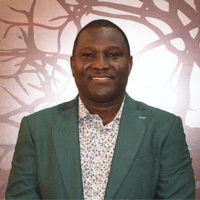Passage of L.I. 2462 Normalised Mining in Forest Reserves – Daryl Bosu
A leading environmental campaigner has warned that Ghana’s forests and freshwater resources face irreversible damage, following the government’s decision to normalise mining in forest reserves through legislation L.I. 2462 passed in 2022.
Daryl Bosu, Deputy National Director of A Rocha Ghana, said during a NorvanReports and Economic Governance Platform (EGP) X Space Discussion on Thursday, April 17, themed “Mining, Power and Protectionism: Who Really Benefits From the Deportation of Foreign Galamseyers?”, that Legislative Instrument (LI) 2462, enacted in 2022, had effectively dismantled previous environmental safeguards.
The instrument, he argued, has opened up large swathes of protected and production forest reserves to both legal and illegal mining, with devastating ecological consequences.
“Since 2017, we have seen a gradual policy shift away from protection towards resource extraction. LI 2462 normalised mining in our forest reserves, undoing over a decade of sustainable forest governance,” said Mr Bosu. “The result is that no fewer than 44 forest reserves have already been severely impacted, and at least 10 protected forests are under direct pressure from mining.”
Ghana has 288 gazetted forest reserves, of which 30 are classified as fully protected. Prior to 2017, mining activity was permitted in only 2 per cent of the country’s production forest areas, while protected reserves remained off-limits. This policy formed part of a long-term forest management plan aimed at phasing out mining in reserves entirely by 2036.
However, the 2022 legislation has upended this strategy. Mr Bosu alleged that political actors and well-connected individuals have exploited the legal framework to obtain prospecting licences, targeting formerly protected forests.
The implications for Ghana’s water resources are equally concerning. Many of the country’s gold-rich zones overlap with critical cocoa-growing regions and major river basins, including the Densu, Ayensu, and Pra. These basins supply drinking water and support livelihoods across the country.
Mr Bosu cited recent academic research indicating that 15 of Ghana’s 16 river basins are now polluted, largely due to mining activity, including artisanal and small-scale gold mining—commonly referred to as galamsey—which often operates illegally and with little regulatory oversight.
“Entire water systems have been compromised,” he said. “From the Tano to the Ankobra and the Densu, the scale of pollution is vast. We are not just losing forest cover; we are threatening food security and public health on a national scale.”
Mr Bosu’s remarks come amid rising public concern over the environmental costs of Ghana’s mining-led economic growth. Gold is the country’s largest export, accounting for roughly 35 per cent of total export revenue in 2023, according to the Bank of Ghana. Yet the sector’s contribution to sustainable development remains contested, particularly as illegal mining continues to proliferate despite numerous enforcement campaigns.
In a recent speech, Ghana’s Minister for Lands and Natural Resources acknowledged the environmental toll of mining but defended the government’s record, citing efforts to reclaim degraded lands and regulate the sector more effectively.
Environmental groups, however, argue that such efforts are insufficient in the face of systemic regulatory lapses and vested interests. Mr Bosu has called for a repeal of LI 2462 and a recommitment to Ghana’s earlier forest management framework.
“If the trajectory of the last four years continues unchecked, the outlook for Ghana’s forests and water systems is bleak,” he warned. “Policy must shift decisively from extraction to conservation, or we risk losing far more than we gain from gold.”








